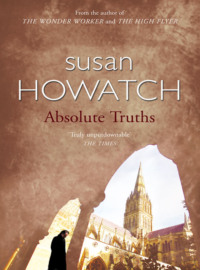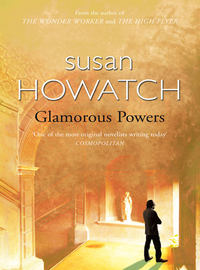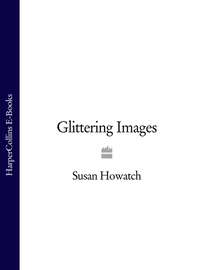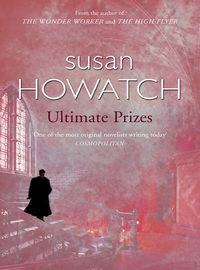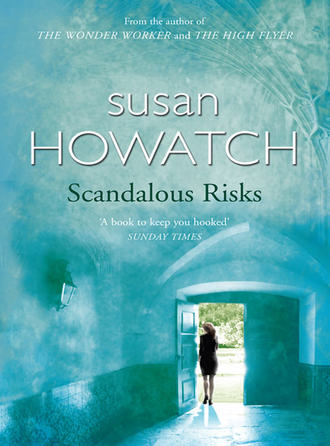
Полная версия
Scandalous Risks
‘Can’t someone encourage poor darling Venetia to take an interest in clothes? Of course I know we can’t all look like a fashion-plate in Vogue, but …’
‘Venetia, my sweet, you simply can’t wear that shade of lipstick or people will think you’re a transvestite from 1930s’ Berlin …’
Even my brothers lapsed into brutality occasionally.
‘Oliver, you’ve got to help me find a young man for Venetia –’
‘Oh God, Mama, don’t ask me!’
‘Harold, do explain to Venetia how ill-advised it is for a young girl to talk about philosophy at dinner-parties – she simply takes no notice when I tell her it’s so dreadfully showy and peculiar –’
‘Certainly, Mama. Now look here, Venetia old girl – and remember I speak purely out of fraternal affection—your average man doesn’t like clever women unless they’re real sizzlers, and since you’ll never be a real sizzler …’
‘Poor Venetia!’ said Absolutely-the-Bottom Arabella to Horrible Henrietta when she knew quite well I was within earshot. ‘No sex appeal.’
‘Well!’ said my father with a sigh of relief once his third daughter was married. ‘Now I can sit back and relax! I don’t have to worry about Venetia, do I? She’ll never be a femme fatale.’
‘… and I can’t tell you how glad I am,’ I overheard my mother confiding to her best friend, ‘that Venetia will inevitably have a quieter life than the others. When I think of all I went through with Arabella – not to mention Henrietta – and even dearest Sylvia was capable of being a little too fast occasionally …’
I remembered that remark as I dressed for dinner on the night of the Aysgarth-Ashworth reunion, and wished I could be a sizzler so fast that no one would see me for dust. I slid into my best dress, which was an interesting shade of mud, but unfortunately I had put on weight with the result that the material immediately wrinkled over my midriff when I dragged up the zip. I tried my second-best dress. The zip got stuck. My third-best dress, which had a loose-fitting waist, was wearable but hopelessly out of fashion and my fourth-best dress transformed me into a sausage again. In rage I returned to number three in the hope that I could divert attention from its unfashionable lines by swathing myself in jewellery.
‘Darling, you look like a Christmas tree!’ exclaimed my mother aghast as she glanced into the room to inspect my progress. ‘Do take off those frightful bracelets – and what on earth is Aunt Maud’s diamond hatpin doing in your hair?’
I sank down on the bed as the door closed. Then in despair I tore away all the jewellery and began to wallop my impossible hair with a brush. Eventually I heard the guests arriving, and after a long interval Harold was dispatched to drag me into the fray.
‘Come along, old girl – everyone’s thinking you must have got locked in the lavatory!’
Loathing the entire world and wishing myself a thousand miles away I followed him downstairs. The sound of animated conversation drifted towards us from the drawing-room, and as I pictured everyone looking matchlessly elegant I had to fight the urge to run screaming through the streets to Sylvia’s house in Chelsea.
‘Here she is!’ chirped idiotic Harold as I finally made my entrance.
All heads swivelled to gaze at my dead dress and diabolical hair. I had a fleeting impression of an unknown couple regarding me with mild astonishment, but just as I was wondering if it were possible to die of humiliation, my Mr Dean exclaimed warmly: ‘My dear Venetia, how very delightful you look!’ and he held out his hands to me with a smile.
IV
It was Aysgarth’s kindness which first attracted me to Christianity; the contrast between his attitude and the callous remarks of the non-believers in my family was so great that I felt the explanation could only be theological. It was small wonder that I hero-worshipped him from an early age, but I must make it clear that I was never in love with him. Such a possibility was inconceivable, first because he was a married clergyman, a creature permanently unavailable for a grand passion, and second because he was over fifty years old and therefore incapable of being classed by my youthful brain as an object of sexual desire. Moreover Aysgarth had become considerably plainer since I had first met him in 1946. By the time of the Ashworth dinner-party eleven years later his springy brown hair was smoother, straighter and a shop-soiled shade of white, while his deeply-lined face was marred by pouches under the eyes. He was also much heavier, not repulsively fat but markedly four-square. ‘Aysgarth’s built like a peasant,’ my father remarked once, not meaning to be unkind but unable to abstain from that insensitive frankness which can be such an unfortunate trait of the aristocracy.
However after Aysgarth’s heroic kindness to me at the beginning of that dinner-party, I would hardly have cared if he had been built like an elephant, and as soon as Primrose and I had the chance for a quick word I said to her enviously: ‘You’re so damned lucky to have a father like that.’
‘Isn’t he wonderful? All other men seem so dreary in comparison.’
Immediately I felt annoyed with myself for giving her the opportunity to drool; once Primrose started flaunting her Elektra complex she was nauseous. ‘Professor Ashworth doesn’t look too bad,’ I said in the hope of diverting her. ‘In fact I’d say he was rather well preserved for a man of his age.’
After my embarrassing entry into the room my mother had cursorily introduced me to the Ashworths, but afterwards the Professor had been buttonholed by Harold while Mrs Ashworth had been cornered by my fascinated father so I had had no opportunity to converse with them. I now paused to inspect the Professor with care. He was a tall man who had kept his figure; I learned later that he had excelled at games in his youth and still possessed a single-figure handicap as a golfer. Middle age had given him a receding hairline, but his curly dark hair was streaked in just the right places with just the right shade of glamorous silver. He had brown eyes, a straight nose, a firm jaw with a cleft chin, and deep lines about his strong mouth. These lines, which immediately suggested past suffering, reminded me he had once been a prisoner of war.
I opened my mouth to remark to Primrose how rare it was to encounter a handsome cleric, but at that moment we were interrupted by James, Aysgarth’s soldier son, and I was obliged to endure a lot of jolly talk about nothing. Nevertheless I kept an eye on the Professor. He was gliding around, displaying a formidable social technique as he talked to everyone in turn. From various syllables which reached my ears I gathered he was even able to talk to Harold’s clothes-horse about fashion.
Eventually Primrose was unable to resist abandoning me to move to her father’s side, jolly James decided to take a hand in passing around the canapés (our butler Pond was most put out) and I was just pretending to inspect my mother’s somewhat constipated flower arrangement when the future Bishop of Starbridge materialised at my elbow and said with such a polished charm that I even thought for a moment that he was genuinely interested in me: ‘I hear you’ve been visiting Florence. It’s a beautiful city, isn’t it?’
‘Possibly,’ I said, determined not to simper at him merely because he was one of the most distinguished churchmen in England, ‘but I don’t like Abroad.’
‘In that case I assume you’re glad to be home!’
‘Not specially, but don’t let’s waste time talking about me, Professor. I’m not a bit interesting, although it’s very kind of you to pretend that I am. Why don’t you tell me all about you?’
I had pierced the cast-iron professional charm. ‘Ah, so you’re a listener!’ he exclaimed with a seemingly genuine amusement. ‘How delightful!’
Mrs Ashworth, slender and sleek in a black dress, chose that moment to interrupt us. My first impression had been that she was much younger than her husband, but now I saw that she was probably his contemporary; her neck had that crêpe-like look which afflicts women past the menopause, but she was so immaculately made up that one barely noticed the tell-tale signs of age. Her dark hair was swept back from her forehead and drawn into a bun at the nape of her neck. Her rimless spectacles gave her a chaste, schoolmistressy look which was curiously at odds with the wicked little dress which clung to her svelte figure, and at once I decided she was far more interesting than her husband. The Professor seemed a very typical product of the best public schools and universities, but Mrs Ashworth, whom I found impossible to place against any definitive background, didn’t seem typical of anything.
She was saying lightly to her husband: ‘Vamping young girls again, darling?’
‘Indeed I am – I’ve just discovered Miss Flaxton’s a listener.’
‘Ah, a femme fatale!’ said Mrs Ashworth, regarding me with a friendly interest as I mentally reeled at her choice of phrase. ‘How clever of you, Miss Flaxton! Men adore good listeners – they have a great need to pour out their hearts regularly to sympathetic women.’
‘I do it all the time myself,’ said the Professor, effortlessly debonair. ‘Apart from golf it’s my favourite hobby.’
‘How very intriguing that sounds!’ said Aysgarth, sailing into our midst with his champagne glass clasped tightly in his hand. ‘Am I allowed to ask what this hobby is or should I preserve a discreet silence?’
There was a small but awkward pause during which I was the only one who laughed – a fact which startled me because although the remark could have been classed as risqué it could hardly have been described as offensive. Yet both Ashworths were as motionless as if Aysgarth had made some error of taste, and Aysgarth himself immediately began to behave as if he had committed a faux pas. ‘Sorry,’ he mumbled. ‘Bad joke. Silly of me.’
The Professor made a lightning recovery. ‘No, no!’ he said, smooth as glass. ‘I was merely startled because you seemed to materialise out of nowhere!’
‘Just thought I’d seize the chance for a quick word before we all go in to dinner –’
‘Of course – I was thinking only a moment ago that I’d talked to everyone in the room except you –’
‘Seems ages since we last met –’
‘Yes, it’s certainly a long time –’
‘Oxford ‘fifty-two, wasn’t it?’ said Aysgarth, having regained his equilibrium with the aid of a large swig of champagne. ‘That weekend when we were both guests of the Master of Balliol.’
‘No, you’ve seen Charles since then,’ said Mrs Ashworth. ‘We met in London when we all helped the Dean of Westminster recover from the Coronation.’
‘So we did! I’d quite forgotten … I’m sorry, I can’t quite remember – dear me, I’m beginning to sound like an amnesiac – but did I ever call you Lyle?’
‘I really have no idea,’ said Mrs Ashworth, as if such a feat of memory was well beyond her capabilities, ‘but please do in future. Did I ever call you Neville?’
‘Neville!’ I exclaimed. ‘But no one calls him Neville nowadays – he’s always Stephen!’
‘Ah,’ said Mrs Ashworth, ‘but you see, I met him before the war when Bishop Jardine appointed him Archdeacon of Starbridge. I was Mrs Jardine’s companion at the time.’
Much intrigued I said: ‘But how romantic that you should now be returning in such style to the house where you were once a mere companion!’
‘It would indeed be romantic if it were true, but the Jardines lived in the old episcopal palace which is now the Choir School, whereas Charles and I will be living – thank goodness! – in the South Canonry. I wouldn’t have wanted to return to the palace,’ said Mrs Ashworth serenely. Too many –’ She hesitated but for no more than a second ‘– poignant memories.’
Aysgarth said: ‘Do you regret the loss of the palace, Ashworth?’ but the Professor replied promptly: ‘Not in the least – and my dear fellow, if you’re going to call my wife Lyle, I really don’t see why you should now fight shy of calling me Charles! I only hope I have your permission to call you Stephen in the interesting times which I’m sure lie ahead for us all.’
Aysgarth at once became almost inarticulate with a shyness which I suspected was triggered not only by his social inferiority complex, but by his gratitude that Ashworth should be making such a marked effort to be friendly. He could only manage to say: ‘Yes. Stephen. Fine. Please do,’ and toss off the remains of his champagne.
Appearing in contrast wholly relaxed Ashworth observed: ‘It really is most remarkable that our careers should have coincided like this – in fact, if you knew how often Lyle and I have been telling ourselves recently that God moves in mysterious ways –’
‘Darling,’ said Mrs Ashworth, ‘if you quote that ghastly cliché once more I shall be tempted to strangle you with your brand-new pectoral cross.’
‘More champagne anyone?’ enquired jolly James, still playing the butler.
His father at once held out his glass. ‘“Well, I don’t mind if I do, sir!” as Colonel Chinstrap used to say on ITMA –’
‘Oh, how I adored ITMA!’ said my mother, drifting over to us and eyeing her constipated flower arrangement as if she had suddenly realised it needed a laxative. ‘Venetia, can you pass around the cigarettes? Pond seems to have disappeared in a huff for some reason …’
‘That bishop-to-be is going to look simply too heavenly in gaiters,’ Harold’s clothes-horse was drawling as she demolished her third dry martini.
‘Can someone stop young James playing the butler?’ muttered my father. ‘Pond’s taken violent umbrage.’
‘… and what I absolutely can’t understand,’ idiotic Harold was burbling in a corner, ‘is how Pater, who can’t bear going to church and has always said “Boo!” to God, has got himself mixed up with these high-powered clerical wallahs.’
‘He’ll probably wind up taking the sacrament on his deathbed,’ said Primrose, ‘like Lord Marchmain in Brideshead.’
‘Brideshead?’ said Harold. ‘Where’s that?’
‘I’m damned hungry,’ said my father to my mother. ‘Are they all dead drunk in the kitchen?’
‘Dinner is served, my Lord!’ thundered Pond reproachfully from the doorway, and with relief we all descended to the dining-room.
V
The next evening Aysgarth called at six o’clock with a note of thanks and a bunch of carnations for my mother, but found only me at home. My mother had travelled down to Flaxton Pauncefoot that morning and my father was attending a Lords’ debate on education. Harold and the clothes-horse had not yet returned from a day at the races.
When Pond showed Aysgarth into the drawing-room I was reading Professor Ashworth’s latest book, St Augustine and the Pelagian Heresy: the Origins of His Theology Concerning God’s Grace, which I had borrowed from the library. The Professor wrote in a cool, lucid prose which created an impression of scholarly detachment and yet succeeded in being surprisingly readable – but perhaps that was because he was writing of St Augustine’s fight to master his sex drive, a fight which was to have immense repercussions both for Christianity and for the bluff heretic Pelagius who had said (more or less) that man could jolly well pull himself up by his own bootstraps and conquer sin not by God’s grace but by will-power and a stiff upper lip.
Pelagius, it is hardly necessary to add, had been a Briton.
‘Oh, I’ve read that book,’ said Aysgarth as we settled down for a delectable discussion of the dinner-party. ‘I thought it very bad. Like St Augustine Charles’s twin obsessions are heresy and sex. Apparently up at Cambridge all his divinity undergraduates refer to him as Anti-Sex Ashworth.’
‘How extraordinary! He seemed quite normal.’
‘No, no – rabid against fornication and adultery. Such a mistake! In my opinion there are far worse sins than the sexual errors, and – whoops! Here’s Pond with the drinks.’
Pond deposited the sherry and whisky decanters, the soda-siphon and a suitable selection of glasses on the side-table and waited for orders, but I waved him away.
‘Help yourself, Mr Dean.’
‘Well, perhaps a little soupçon of sherry –’
‘Oh, go on – have a whisky! You don’t want to go down in history as Anti-Alcohol Aysgarth!’
‘That possibility,’ said my Mr Dean, helping himself to a modest measure of scotch, ‘is so remote that I don’t think we need consider it seriously. And I must guard my tongue about Charles, who was certainly more than civil to me last night – even though I nearly shocked him to death with my opening remark –’
‘But only a second before you arrived Mrs Ashworth had been teasing him about vamping young girls! I don’t think you shocked him at all – he was just taken aback because you slunk up behind him and –’
‘– hit him over the head with a double entendre! I must have been mad.’
‘I thought you were sensational. And so was Mrs Ashworth, making that little black dress look like a hundred-guinea model from Harrods just by wearing one piece of jewellery – and choosing rimless spectacles instead of glasses with distracting frames – and dyeing her hair so cunningly that no man would ever dream it had been touched up –’
‘Dyeing her hair? But no clergyman’s wife would ever do that!’
‘Yes, I expect that’s what the Professor thinks too whenever he’s not busy conquering everyone in sight by exuding that synthetic charm of his. But tell me: who is Mrs Ashworth? Where did she come from? And how did the two of them meet?’
‘Ah!’ said Aysgarth, settling down cosily for a gossip. ‘Now that’s quite a story …’
VI
Apparently Mrs Ashworth had grown up in a remote Norfolk parish where her great-uncle had been the vicar; her parents had died young. This clerical background had enabled her to obtain the post of companion to Bishop Jardine’s wife when Jardine himself, rocketing racily up the Church’s ladder of preferment, had been appointed Dean of Radbury in the ’twenties. Five years later in 1932 he had become the Bishop of Starbridge. In 1937, the young Charles Ashworth, already a doctor of divinity, had decided to visit Starbridge to do some research in the Cathedral Library, and since he was the protégé of Archbishop Lang he had been invited to stay at the episcopal palace. Crossing the threshold he had fallen instantly and violently in love with Mrs Jardine’s companion.
Since Mrs Jardine had been an ineffectual woman who had relied on her companion to run the palace for her, this coup de foudre had caused chaos, but Ashworth, much to the Bishop’s fury, had refused to be deflected from his romantic charge to the altar.
‘The whole trouble was,’ said Aysgarth, ‘that Lyle’s departure was a bereavement for the Jardines as well as a crippling inconvenience. They were a childless couple who’d come to regard her as a daughter, and they’d reached the stage where they couldn’t imagine life without her.’
‘Presumably they were all reconciled later?’
‘Oh yes, but back in 1937 –’
‘– the Jardine dragon had to be vanquished before St George could carry away the maiden on his shining white horse!’
‘As a matter of fact whether he was a saint and she was a maiden was hotly debated later when the two of them produced a baby only seven months after the wedding, but since the infant was very small and delicate, just as a premature baby should be, everyone eventually agreed that the maiden’s purity had been unsullied prior to her marriage.’
‘Rather tricky to be a clergyman,’ I said, ‘and produce a baby a shade too fast.’
‘Most embarrassing for poor Charles! However I never had any serious doubt that he’d behaved himself – he was always too ambitious to do anything else.’ As an afterthought he added: ‘He was married before – his first wife was killed in a car crash – but although he was a widower for some time before he met Lyle you can be sure he kept himself in order. The first thing a successful young clergyman learns to acquire, if he wants to continue as a success, is an immaculate self-control in dealing with women.’
‘At least nowadays clergymen can get married, which is more than poor St Augustine could – although actually I don’t understand why St Augustine couldn’t marry. Why did he have to be celibate?’
‘Well, in the days of the Early Church …’
We embarked on a fascinating conversation about the origins of clerical celibacy, and Aysgarth promised to lend me his copy of St Augustine’s Confessions.
‘My dear Venetia,’ he sighed at last as he finished his whisky and rose reluctantly to his feet, ‘how very much I enjoy talking to you!’
I smiled radiantly at him and felt like a sizzler.
VII
I should perhaps make it clear that contrary to the impression I may have created while describing the turning point of his career, I did not see Aysgarth often. He led a busy life at Westminster, and I was often away. After leaving boarding school I had been obliged to endure periods of exile in Switzerland and Italy, and even when I returned to England I often sneaked down to Flaxton Pauncefoot in order to escape from the ghastly London social events where I was either ignored or treated as a freak. Life drifted on. I had no idea what I wanted to do. My métier seemed to consist of sipping drinks, smoking cigarettes and reading books. There was no calling, no summons from God written in the sky in letters of fire, and increasingly often it seemed to me that my career as an adult was incapable of beginning so long as I remained condemned to the sidelines of life by my unfortunate looks and my embarrassing intellectual inclinations.
Sometimes I gave way to despair. Supposing I had to suffer the ultimate horror of not marrying? Then I would be ‘poor old Venetia’, that pathetic freak, till my dying day. The prospect was intolerable. My depression deepened. My parents found me increasingly difficult, and soon after the Aysgarth-Ashworth dinner-party they decided that something would have to be done.
It was unusual for my parents to stage a joint attack. My mother preferred to leave the bombastic behaviour to my father and take refuge in the conservatory, but on this occasion she was apparently desperate enough to decide that I was more important than her plants.
‘We just thought we’d have a little word, darling,’ she said soothingly after we had all assembled for battle in the drawing-room of our house in Lord North Street. ‘Your father’s actually quite worried about you.’
‘Worried?’ said my father, bristling with rage. ‘I’m not worried, I’m livid! I shouldn’t have to deal with a recalcitrant daughter at my age – it’s bad for my blood pressure.’
‘You should have thought of that,’ I said tartly, ‘before you frolicked around with Mama in Venice in 1936.’
‘Frolicked? What a damn silly word – makes me sound like a bloody pansy!’
‘Oh, do stop screaming at each other!’ begged my mother, fanning herself lightly with the latest edition of Homes and Gardens. ‘What happened in ‘thirty-six is quite irrelevant – except that here you are, Venetia, and we have to help you make the best of your life – which means we simply must insist that you now stop frivolling and –’
‘Frivolling?’ I mimicked. ‘What a damn silly word! Makes me sound like a bloody butterfly!’
‘Oh my God,’ said my mother, taking refuge in Homes and Gardens.
‘Just because you happen to be reading St Augustine’s Confessions’ said my father, storming into the attack, ‘you needn’t think you’re not frittering away your time – and I must say, I think Aysgarth should have asked my permission before he lent you that book. Parts of it are most unsuitable for an unmarried young woman.’
‘If you mean that incident in the public baths when Augustine was fourteen –’


